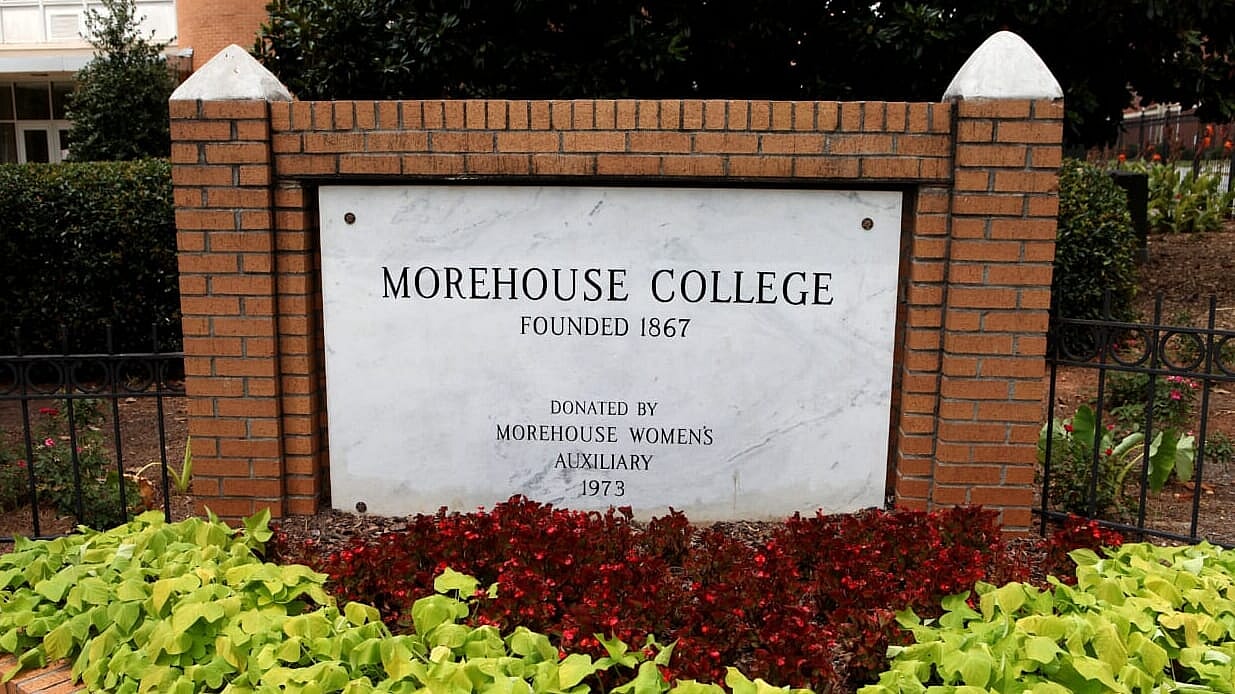An activist organization has wiped out $10 million in loan debt for nearly 3,000 former Morehouse College students.
USA Today reported that the Debt Collective, a debtors’ union, worked with the institution and the Rolling Jubilee Fund, a 501(c)(4) that purchased the debt to provide relief for 2,777 former students of the Atlanta-based historically Black college for men. Through the fall 2022 semester, the students owed $9,707,827.67, with some debts stretching back decades.
Last year, the Debt Collective paid $1.7 million for unpaid student balances at Bennett College, a historically Black women’s liberal arts college in North Carolina.

For many former students, institutional loans can make it hard to kickstart a life after college. Some institutions, for example, refuse to release records for students who owe them money. A 2021 Hechinger Report, found that 6.6 million students couldn’t access their transcripts because of debt, disproportionately affecting minority households.
“The financial burden prevents them from being able to move on with their lives,” said Debt Collective press secretary Braxton Brewington. “Without transcripts, students can’t advance their education. It just sort of follows them.”
The Morehouse clearance did not apply to federal student loans, which now total over $1.6 trillion nationally; repayments of those loans resumed a few weeks ago following a years-long halt due to the pandemic. Instead, the Debt Collective wiped out money owed directly to the college, such as attendance loans, delinquent tuition, or even parking fees.
Black students are less likely to come from a wealthy family and more likely to incur educational debt. According to statistics from United Negro College Fund (UNCF)research, students who attend HBCUs borrow at a much higher rate than their classmates at other types of schools and are nearly three times as likely to borrow $40,000 or more.
The Supreme Court decided against President Joe Biden’s initial plan for universal forgiveness this summer, which would have canceled up to $20,000 in federal student loans for low- and middle-income students.
Since then, the government has made efforts to provide aid through other measures, including moving to clean up the public-service debt forgiveness and income-based repayment programs, freeing tens of thousands of borrowers from their debt. It is pursuing changes to federal legislation that might relieve tens of thousands more people.
Despite Biden’s campaign pledges, the Education Department has recently stopped short of announcing widespread cancellation.
“Debt has proven itself to be one of the strongest deterrents in a prospective student’s decision to attend college and inhibitors in alumni’s socioeconomic success post-graduation,” said Morehouse’s president, David A. Thomas, according to USA Today.
In 2019, Morehouse made headlines when graduates learned just before receiving their degrees that billionaire investor Robert F. Smith, the country’s richest Black man, would pay off their student loans — a $34 million gift later linked to a tax fraud scam.
The burden imposed by debt, Thomas said, is why Morehouse’s “$500 million capital campaign aims to position the college as a need-blind institution by 2030.” He added: “Partners like the Debt Collective and Rolling Jubilee are making the investment to help level the financial playing field for our students and alumni, and we are all tremendously grateful for their vote of confidence through such a generous gift and financial relief.”
TheGrio is FREE on your TV via Apple TV, Amazon Fire, Roku and Android TV. Also, please download theGrio mobile apps today!

